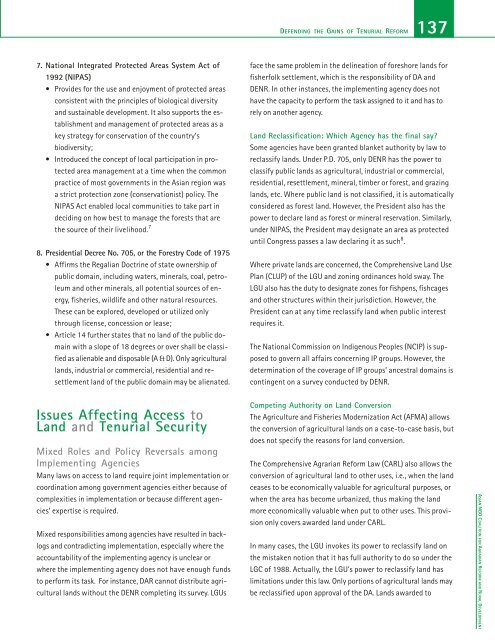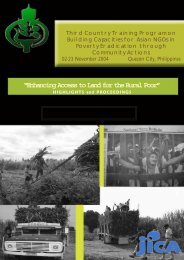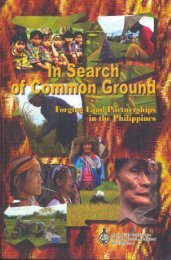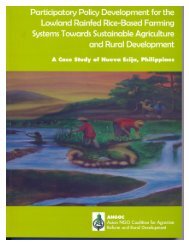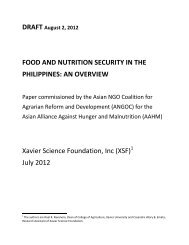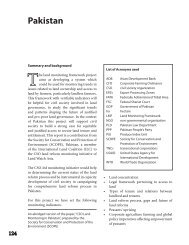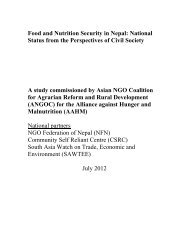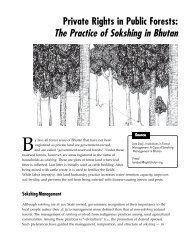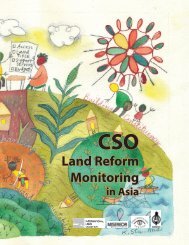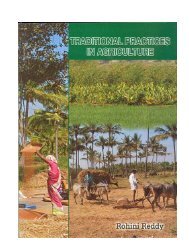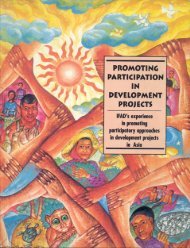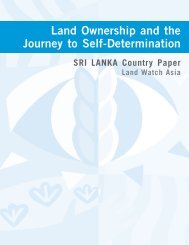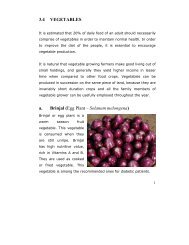Securing the Right to Land FULL - ANGOC
Securing the Right to Land FULL - ANGOC
Securing the Right to Land FULL - ANGOC
Create successful ePaper yourself
Turn your PDF publications into a flip-book with our unique Google optimized e-Paper software.
7. National Integrated Protected Areas System Act of<br />
1992 (NIPAS)<br />
Provides for <strong>the</strong> use and enjoyment of protected areas<br />
consistent with <strong>the</strong> principles of biological diversity<br />
and sustainable development. It also supports <strong>the</strong> establishment<br />
and management of protected areas as a<br />
key strategy for conservation of <strong>the</strong> country’s<br />
biodiversity;<br />
Introduced <strong>the</strong> concept of local participation in protected<br />
area management at a time when <strong>the</strong> common<br />
practice of most governments in <strong>the</strong> Asian region was<br />
a strict protection zone (conservationist) policy. The<br />
NIPAS Act enabled local communities <strong>to</strong> take part in<br />
deciding on how best <strong>to</strong> manage <strong>the</strong> forests that are<br />
<strong>the</strong> source of <strong>the</strong>ir livelihood. 7<br />
8. Presidential Decree No. 705, or <strong>the</strong> Forestry Code of 1975<br />
Affirms <strong>the</strong> Regalian Doctrine of state ownership of<br />
public domain, including waters, minerals, coal, petroleum<br />
and o<strong>the</strong>r minerals, all potential sources of energy,<br />
fisheries, wildlife and o<strong>the</strong>r natural resources.<br />
These can be explored, developed or utilized only<br />
through license, concession or lease;<br />
Article 14 fur<strong>the</strong>r states that no land of <strong>the</strong> public domain<br />
with a slope of 18 degrees or over shall be classified<br />
as alienable and disposable (A & D). Only agricultural<br />
lands, industrial or commercial, residential and resettlement<br />
land of <strong>the</strong> public domain may be alienated.<br />
Issues Affecting Access <strong>to</strong><br />
<strong>Land</strong> and Tenurial Security<br />
Mixed Roles and Policy Reversals among<br />
Implementing Agencies<br />
Many laws on access <strong>to</strong> land require joint implementation or<br />
coordination among government agencies ei<strong>the</strong>r because of<br />
complexities in implementation or because different agencies’<br />
expertise is required.<br />
Mixed responsibilities among agencies have resulted in backlogs<br />
and contradicting implementation, especially where <strong>the</strong><br />
accountability of <strong>the</strong> implementing agency is unclear or<br />
where <strong>the</strong> implementing agency does not have enough funds<br />
<strong>to</strong> perform its task. For instance, DAR cannot distribute agricultural<br />
lands without <strong>the</strong> DENR completing its survey. LGUs<br />
DEFENDING THE GAINS OF TENURIAL REFORM<br />
137<br />
face <strong>the</strong> same problem in <strong>the</strong> delineation of foreshore lands for<br />
fisherfolk settlement, which is <strong>the</strong> responsibility of DA and<br />
DENR. In o<strong>the</strong>r instances, <strong>the</strong> implementing agency does not<br />
have <strong>the</strong> capacity <strong>to</strong> perform <strong>the</strong> task assigned <strong>to</strong> it and has <strong>to</strong><br />
rely on ano<strong>the</strong>r agency.<br />
<strong>Land</strong> Reclassification: Which Agency has <strong>the</strong> final say?<br />
Some agencies have been granted blanket authority by law <strong>to</strong><br />
reclassify lands. Under P.D. 705, only DENR has <strong>the</strong> power <strong>to</strong><br />
classify public lands as agricultural, industrial or commercial,<br />
residential, resettlement, mineral, timber or forest, and grazing<br />
lands, etc. Where public land is not classified, it is au<strong>to</strong>matically<br />
considered as forest land. However, <strong>the</strong> President also has <strong>the</strong><br />
power <strong>to</strong> declare land as forest or mineral reservation. Similarly,<br />
under NIPAS, <strong>the</strong> President may designate an area as protected<br />
until Congress passes a law declaring it as such 8 .<br />
Where private lands are concerned, <strong>the</strong> Comprehensive <strong>Land</strong> Use<br />
Plan (CLUP) of <strong>the</strong> LGU and zoning ordinances hold sway. The<br />
LGU also has <strong>the</strong> duty <strong>to</strong> designate zones for fishpens, fishcages<br />
and o<strong>the</strong>r structures within <strong>the</strong>ir jurisdiction. However, <strong>the</strong><br />
President can at any time reclassify land when public interest<br />
requires it.<br />
The National Commission on Indigenous Peoples (NCIP) is supposed<br />
<strong>to</strong> govern all affairs concerning IP groups. However, <strong>the</strong><br />
determination of <strong>the</strong> coverage of IP groups’ ancestral domains is<br />
contingent on a survey conducted by DENR.<br />
Competing Authority on <strong>Land</strong> Conversion<br />
The Agriculture and Fisheries Modernization Act (AFMA) allows<br />
<strong>the</strong> conversion of agricultural lands on a case-<strong>to</strong>-case basis, but<br />
does not specify <strong>the</strong> reasons for land conversion.<br />
The Comprehensive Agrarian Reform Law (CARL) also allows <strong>the</strong><br />
conversion of agricultural land <strong>to</strong> o<strong>the</strong>r uses, i.e., when <strong>the</strong> land<br />
ceases <strong>to</strong> be economically valuable for agricultural purposes, or<br />
when <strong>the</strong> area has become urbanized, thus making <strong>the</strong> land<br />
more economically valuable when put <strong>to</strong> o<strong>the</strong>r uses. This provision<br />
only covers awarded land under CARL.<br />
In many cases, <strong>the</strong> LGU invokes its power <strong>to</strong> reclassify land on<br />
<strong>the</strong> mistaken notion that it has full authority <strong>to</strong> do so under <strong>the</strong><br />
LGC of 1988. Actually, <strong>the</strong> LGU’s power <strong>to</strong> reclassify land has<br />
limitations under this law. Only portions of agricultural lands may<br />
be reclassified upon approval of <strong>the</strong> DA. <strong>Land</strong>s awarded <strong>to</strong><br />
ASIAN NGO COALITION FOR AGRARIAN REFORM AND RURAL DEVELOPMENT


